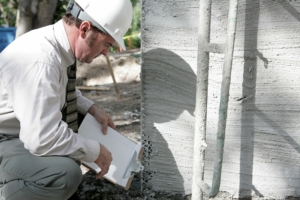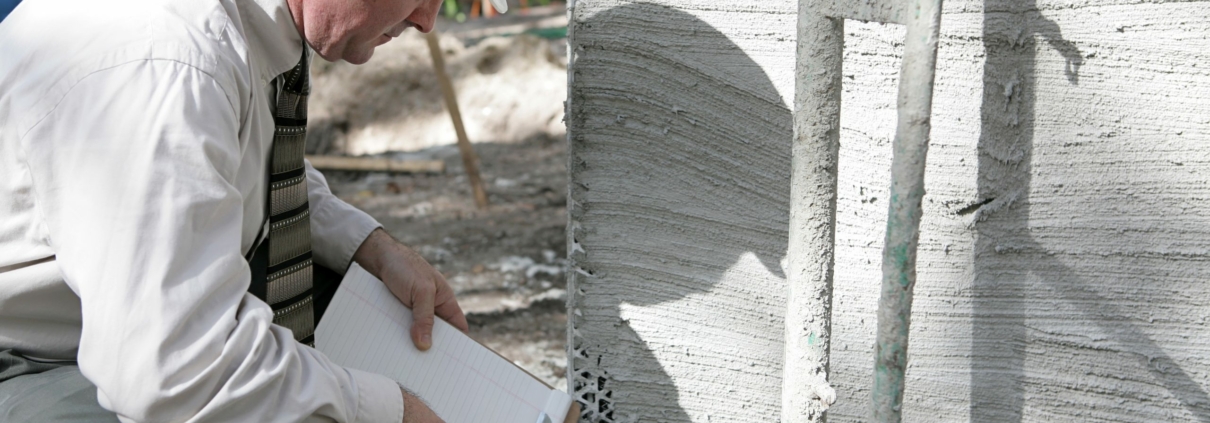
“I need a home inspection to make sure everything is up to code.”
This is an example of a common request when someone contacts us for a home inspection in North Carolina. Does a home inspection look for code violations? Well… yes and no.
No in the sense that this is not a code compliance inspection. As home inspectors, we do not comment on a house’s compliance with local building codes or blatantly call something out as being a code violation.
Yes in the sense that as home inspectors, we generally have a working knowledge of codes and standards so that we can identify defects, possible causes of those defects, and safety hazards. Even still, there is no calling out of any code violations.
Home Inspection Are Not Pass/Fail
It’s important for clients and agents to understand that a home inspection is not a pass/fail inspection. This is an assessment of the house’s overall health at a particular point in time.
Rather than being concerned with code, we are concerned primarily with safety. If there is a part of a home where its compliance with code is questionable, we may use language such as:
“This is not a recommended practice”
“I Recommend upgrading to current standards“
Why don’t we call out code violations? Well, the answer is simple: We do not have that authority. Even if we are aware of building code, there is a lot of complication surrounding it.
A Practical Example
For example, a Concord home inspection on a historic home built in 1901 that has not been updated since 1960 will not have GFCI receptacles installed in the bathroom.
By 2021, GFCI protection has long since been a requirement. However, the house built in 1901 is grandfathered and not required to conform to current codes. The renovations that were done in 1960 will then held to standards of 1960. Heck, in 1960, the GFCI wasn’t invented yet.
However, because it is a safety hazard, it will be called out as such. It was introduced into the code a little over a decade later because people were dying from electrocution in their bathrooms when water and electricity mixed.
The defect in that instance is not that it was code violation. The defect is that it is a safety hazard. Calling a code violation does nothing for a potential buyer of that home. It wasn’t required in 1960. End of story. On the other hand, calling it a safety hazard has a small chance to be beneficial when it comes time to negotiate.
Are Home Inspectors Allowed To Quote Code?
In the state of North Carolina, home inspectors are not strictly prohibited from citing code, but there are very strict guidelines. This is from the North Carolina Home Inspection Licensure Board:
§ 143-151.58. Duties of licensed home inspector.
(a2) State Building Code. – If a licensee includes a deficiency in the written report of a home inspection that is stated as a violation of the North Carolina State Residential Building Code, the licensee must do all of the following:
(1) Determine the date of construction, renovation, and any subsequent installation or replacement of any system or component of the home.
(2) Determine the State Building Code in effect at the time of construction, renovation, and any subsequent installation or replacement of any system or component of the home.
(3) Conduct the home inspection using the building codes in effect at the time of the construction, renovation, and any subsequent installation or replacement of any system or component of the home.
In order to fully inform the client, if the licensee describes a deficiency as a violation of the State Building Code in the written report, then the report shall include the information described in subdivision (1) of this subsection and photocopies of the relevant provisions of the State Building Code used pursuant to subdivision (2) of this subsection to determine any violation stated in the report. The Board may adopt rules that are more restrictive on the use of the State Building Code by home inspectors.
Summary
A home inspector in North Carolina is allowed to cite code and inform a client of a code violation. However, if the home inspector is not a qualified code inspector, this can be quite dangerous. It can lead not only to lawsuits, but most importantly to a severely misinformed client. This provision in the North Carolina statutes is a nice way of telling home inspectors to stay in their lane!
Moreover, if an inspector is not certified by the local governing body in code compliance, but still elects to cite code in the report, the inspector runs the risk of not being covered under their errors and omissions insurance. Should a mistake be made and lead to a lawsuit, the insurance company may say that inspector did this at their own risk. The reason being the inspector went well outside the standards of practice and an insurance company covers an inspector largely based on the standards of practice in their particular jurisdiction.
Just remember – a house cannot fail a home inspection. Home inspectors in North Carolina are allowed to cite code under very specific restrictions, but cannot enforce code. Although most home inspectors will not quote code in their reports, inspectors will use their knowledge of current and previous code to inform their inspection and communication as a means to keep you safe and properly informed.

